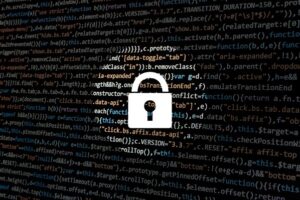Safe browser extensions are the first line of privacy defense
If you’re old enough to remember the days when the internet was just getting fired up, you’ll remember that privacy was not really something we worried too much about. This was, of course, before the days of social media and before cybercriminals turned their wicked genius towards data theft and other nefarious purposes. Today we use the internet for virtually everything and we can do it all from a device that fits in our palm. On your home PC or the computer at your office, you may be a bit more aware of privacy and take measures to monitor how much information you’re giving out, but frequently on our smartphones, we forget that it’s the same internet we’re connecting to. We download apps without thinking, and even on our home laptops we frequently allow browser extensions because they seem like they might be useful… without really doing due diligence to find out if they are doors to malicious software such as Trojan viruses that sneak in undetected and begin stealing data. Becoming more aware of privacy issues is something we need to “up our game” in – as well as teaching our children how to always be aware of privacy as they begin their lives online. Here are some ‘do’s and don’ts’ to help you stay safe and maintain privacy online.

Do you use a safe browser? A safe browser is an add-on extension that works in real-time to scour the net ahead of you as you browse and warn you of sites that have been flagged by the community of users or algorithms used by the website safety browser checker. It helps you to determine whether you should trust a website. And knowing if you can trust a website isn’t as simple as it sounds. Many people are still falling for the fake Facebook login pages, which you would be alerted to if you were using a safe browsing app both on your phone and on any device. So, number one: Do use a safe browser.
Don’t give out too much personal information on social media. What is “too much information?” Well, basically anything that you can avoid sharing you should avoid sharing. Photos tagged with locations, your middle name, your phone number… you’ll be surprised at how much is available about you simply based on things you’ve put up on social media. Let’s say someone is looking to sell a car and they post, “call me at 555-5555.” That telephone number can be used to trace your address. And with just your name and telephone number, who knows what nasty things bad guys could get up to.
Do browse the internet with a safe browser but also do so in incognito or private mode whenever possible especially when shopping and doing credit card transactions. If you have the ability, you can take it a step further and consider using a Virtual Private Network or VPN. Do also use quality antivirus software and don’t be afraid to spend a little money on a subscription as it could save you a lot down the road.
Finally, don’t use bad passwords. There’s no nice way to say this but many people use passwords that are… well, dumb. These unsafe passwords are relatively simple for hackers to guess, especially those who are using AI programs to crack codes. Strong passwords can be difficult to remember – and there are programs that can create and compile passwords for you, although these can be problematic as they can be hacked themselves – in general try to think of some sort of phrase that you will remember and turn it into a password with symbols, capital letters, and numbers. For example, your passphrase for a website that you buy books from could be something like, “Shakespeare was born in April 1564.” This would be turned into sKpWzBn=4/1564. If you forget the date, you can always go look up when Shakespeare was worn and the passphrase/password will probably come back to you. These password phrases are the best way of being able to have unique, strong passwords that for each individual website you log into.
The days of being able to get away with slip-ups online are over and like packs of hungry predators, hackers sit around all day with nothing else to do but search for weaknesses and if you’re one of them… you will be eaten. Don’t let that happen. Start by downloading a safe browser extension and use that whenever you’re online. Next, assess your other vulnerabilities and start taking steps to correct them.